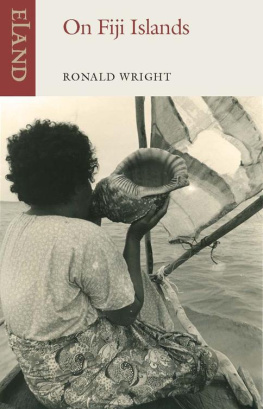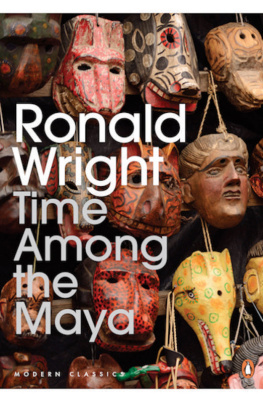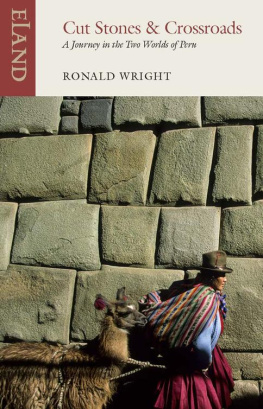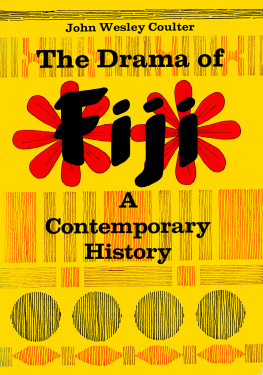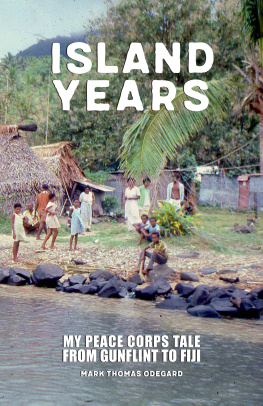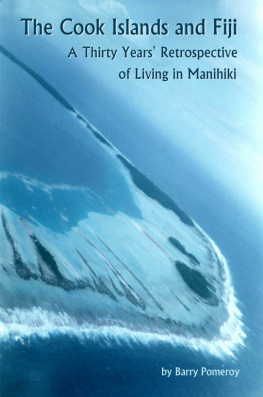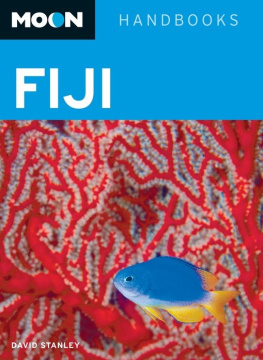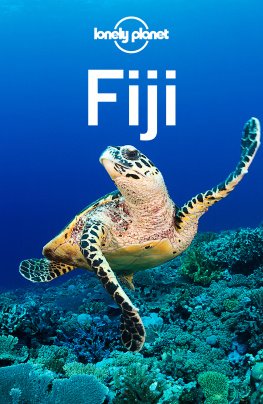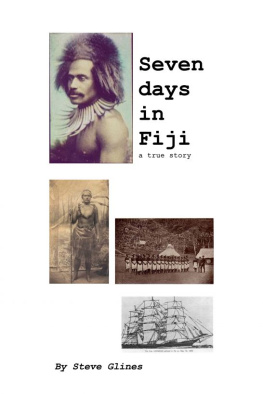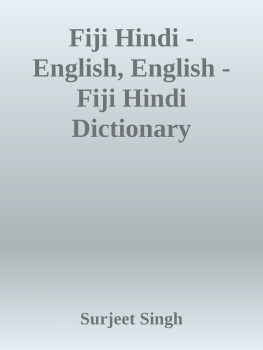Ronald Wright - On Fiji Islands
Here you can read online Ronald Wright - On Fiji Islands full text of the book (entire story) in english for free. Download pdf and epub, get meaning, cover and reviews about this ebook. year: 2020, publisher: Eland Publishing, genre: Detective and thriller. Description of the work, (preface) as well as reviews are available. Best literature library LitArk.com created for fans of good reading and offers a wide selection of genres:
Romance novel
Science fiction
Adventure
Detective
Science
History
Home and family
Prose
Art
Politics
Computer
Non-fiction
Religion
Business
Children
Humor
Choose a favorite category and find really read worthwhile books. Enjoy immersion in the world of imagination, feel the emotions of the characters or learn something new for yourself, make an fascinating discovery.
- Book:On Fiji Islands
- Author:
- Publisher:Eland Publishing
- Genre:
- Year:2020
- Rating:5 / 5
- Favourites:Add to favourites
- Your mark:
- 100
- 1
- 2
- 3
- 4
- 5
On Fiji Islands: summary, description and annotation
We offer to read an annotation, description, summary or preface (depends on what the author of the book "On Fiji Islands" wrote himself). If you haven't found the necessary information about the book — write in the comments, we will try to find it.
On Fiji Islands — read online for free the complete book (whole text) full work
Below is the text of the book, divided by pages. System saving the place of the last page read, allows you to conveniently read the book "On Fiji Islands" online for free, without having to search again every time where you left off. Put a bookmark, and you can go to the page where you finished reading at any time.
Font size:
Interval:
Bookmark:
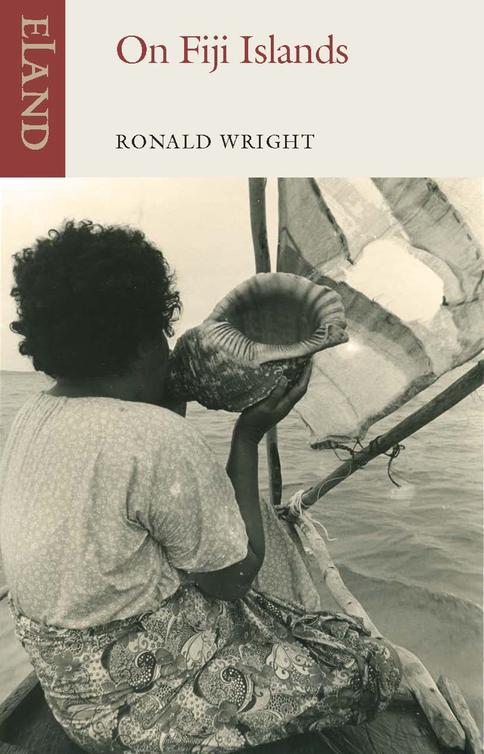
This book is for
J. Rod Vickers
M any people helped me during the research and writing of this book. Fijis inhabitants extended their remarkable courtesy and hospitality, and Alberta Culture gave generous financial support without which the journey might never have been made. Any list of individuals will be fraught with omissions, but I should like in particular to thank here the following for many forms of hospitality and kindness. In Fiji: Jemesa Bonowai, Ratu Sir George Cakobau, Fergus Clunie, Paul Geraghty, Michael Howard, Ratu Lemeki Natadra, Tevita Nawadra, Nii Plange, Josaia Ratumaitavuki, Marshall Sahlins, Aseri Vueti, Rabi Island Chairman, Manager and Council of Leaders, the Superintendent and Ministers of Rabi Methodist Church, the Principal, staff and pupils of Rabi Secondary School. In Britain and Canada: Janice Boddy, Sir Ronald and Lady Garvey, William McKellin, Bella Pomer, Ralph Premdas, Rod Vickers, Penny Williams, my parents. At Viking Penguin: Jennifer Snodgrass, William Strachan, Charles Verrill.
For this handsome new edition I am grateful to Barnaby Rogerson and Rose Baring at Eland. Thanks also to Rob Kay for help and South Seas lore over many years.
A first book finds its author, but a second book has to be found. First books lurk many years in the mind before driving a person to write. The second is the higher hurdle, the test of whether you can do this thing more than once and quell a sardonic inner voice whispering that the first was sheer luck. At least, thats the way it was for me and On Fiji Islands. My first, Cut Stones and Crossroads, had a head of steam behind it: a long obsession with Peru and the Inca past which began in my early teens and led me to take archaeology and anthropology at Cambridge, and later the University of Calgary, where I based myself between trips to South America. As soon as that book was accepted for publication, the question became what now?
I was still living in western Canada, putting food on the table with freelance journalism for radio, newspapers and magazines. (I also kept up a professional truckers licence, which helped when assignments were scarce.) One day in the summer of 1983 I ran into an old friend from graduate student days, Roderick Vickers. Rod and I had kept in touch sporadically, getting together for chess and beer, or rather beer and chess, whenever our paths crossed. He had come down to Peru for a few weeks during my last trip there. Before that hed been living in Fiji, making an archaeological survey of a remote part of the Viti Levu highlands. Greatly intrigued by his tales of Fiji, ancient and modern, I suggested that if he ever went back there I would like to tag along. Maybe a journey to the South Seas where Id never been might turn up an answer to what now? Rod was easily persuaded. As the chill breath of autumn spilled down from the Rockies, we boarded a flight.
Reading this book again for the first time since the last century has been a curious experience, at times unsettling. Some scenes came before my eyes as if I was back within that younger self half a lifetime ago. Others Id wholly forgotten. Things which didnt find their way into the book also rose to mind, though I cant be sure they happened as they seem today. Saddest is this: while my old friend Rod still lives in these pages (as Derek), his great fondness for tavako has since taken him along the Spirits Way we walked in Chapter 4. Without Rod this book would not have been written; its dedication to him is here renewed.
Both Fiji and those times are other countries now. The Cold War was still on, a backdrop, perhaps, to some of the political troubles in the islands not long after this book came out. There was no worldwide web, no mobile phones; overseas calls were so costly and tiresome that I never made one. Home computers were rare, few writers could afford them. Once home in Canada, I banged out draft after draft of Fiji with two fingers on a manual typewriter, my only back-up an unruly heap of carbon copies in the boot of my car. The nearer I got to the moment of truth when Id have to show the result to my agent, the louder that inner voice harped on the folly of a second book. This state of mind wasnt helped by moving two thousand miles from the west, where Id had rolling prairie around me and a distant view of the Rockies, to the 25th floor of a tower block overlooking the busiest freeways in Toronto. Id gone there to be with a woman, but hadnt reckoned on that citys six-month purgatory of grey, damp, grimy cold. The windows faced north. The sun didnt look in all winter. Wind was another matter at that height it knifed in with the slightest encouragement, bringing the howl of truck tyres and police sirens with every breath of fresh air. And each evening, at exactly five, a reek of fried onions filled the building.
In short, the book project was feeling like a long bout of some painful illness, as Orwell aptly puts it. So it was an agreeable surprise on re-reading Fiji after so many years especially when reading in the right way, as if it were the work of someone else to find a sense of ease Id not expected, even a light and cheerful tone. Despite the self-doubt and Sisyphean labour, the wonder and pleasure of the journey had somehow won through.
Much of the credit must go to the islands themselves and the people I was lucky to meet there. In the long run, those months in Fiji proved to be more than a fulfilling search for a second book. They kindled a love for the region that has stayed with me ever since, drawing me back to Fiji and on to other Pacific islands, among them the Marquesas, Tuamotus and the Tahiti group. The South Seas helped me follow up ideas on culture and power which arose in my first book and became a theme of several others, especially Hendersons Spear, a novel set partly in Fiji and French Polynesia. My thoughts also returned to the Pacific in A Short History of Progress, which examined the rise and fall of ancient civilisations around the world to see what we might learn about the outlook for our own. One case was the tragic fate of Rapa Nui, or Easter Island, and its warning to the modern world.
The peopling of the Pacific was an extraordinary feat of boldness and navigation, from the earliest days more than three thousand years ago when people first sailed outrigger canoes beyond the horizon, and kept going eastward until they settled Vanuatu, Fiji, Samoa and then every habitable speck of land in the vast ocean hemisphere all long before Europes age of discovery began. Not until 1519, when Balboa tasted salt water and waded knee-deep from a beach in Darien, did the great sea even have a European name. Until then, as Herman Melville would say, it was not down in any map; true places never are.
Peruvians had also been sailing into the Pacific for a thousand years before Magellan and Mendaa; so too, on the far side, had the Chinese and others. Yet none of these intruders left much of an impression. Spanish galleons plied between Manila and Mexico for more than two centuries without ever sighting Hawaii. The last to find the South Seas were northern latecomers: Cook and Bougainville, Wallis and Bligh, and then the whalers of Melvilles time. Until the coming of the nineteenth century those trespassers didnt make much of an impression either.
Since then, of course, the outside world has slaughtered the whales, cut out the sandalwood, scooped up the sea-slugs, mined the minerals and enslaved, evangelised and murdered countless islanders. Some islands were made into plantations and penal colonies, others became coaling stations and fixed aircraft carriers. After 1945, the Americans and French used several as atomic test pads: places to practise blowing up the world. Meanwhile, saccharine Pacific fantasies spawned a hit musical and a vogue for tiki bars.
Font size:
Interval:
Bookmark:
Similar books «On Fiji Islands»
Look at similar books to On Fiji Islands. We have selected literature similar in name and meaning in the hope of providing readers with more options to find new, interesting, not yet read works.
Discussion, reviews of the book On Fiji Islands and just readers' own opinions. Leave your comments, write what you think about the work, its meaning or the main characters. Specify what exactly you liked and what you didn't like, and why you think so.

